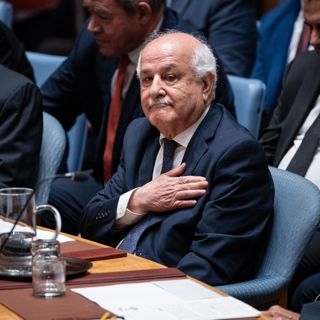
A Conversation With a Border Patrol Agent
President Trump vowed to crack down on undocumented immigration and empower the Border Patrol. Three years later, the agency is the target of outrage, protest and investigation into its mission and conduct, and many of the agents who have supported Mr. Trump say that morale is low. We spoke with one of them. Guest: Art Del Cueto, a Border Patrol agent in Arizona and vice president of the National Border Patrol Council. For more information on today’s episode, visit nytimes.com/thedaily. Background reading: Overwhelmed by desperate migrants and criticized for mistreating those in their care, many agents, whose work has long been viewed as a ticket to the middle class, have grown frustrated and bitter. Subscribe today at nytimes.com/podcasts or on Apple Podcasts and Spotify. You can also subscribe via your favorite podcast app here https://www.nytimes.com/activate-access/audio?source=podcatcher. For more podcasts and narrated articles, download The New York Times app at nytimes.com/app.
24 Sep 201927min

The President, Joe Biden and Ukraine
Over the weekend, reports of a secret whistle-blower complaint against President Trump turned into allegations that the president had courted foreign interference from Ukraine to hurt a leading Democratic rival, former Vice President Joseph R. Biden Jr. Mr. Trump called the allegations a “witch hunt” and accused Mr. Biden of corruption.Guest: Michael S. Schmidt, who covers national security and federal investigations for The New York Times. For more information on today’s episode, visit nytimes.com/thedaily. Background reading: President Trump acknowledged that he discussed Mr. Biden during a phone call with Ukraine’s president, but he did not directly confirm news reports that he had pressured the foreign leader for an investigation.Here’s what we know about the role of Mr. Biden and his son Hunter in the controversy. Subscribe today at nytimes.com/podcasts or on Apple Podcasts and Spotify. You can also subscribe via your favorite podcast app here https://www.nytimes.com/activate-access/audio?source=podcatcher. For more podcasts and narrated articles, download The New York Times app at nytimes.com/app.
23 Sep 201920min

Anatomy of a Warren Rally
With crowds that are said to number 15,000 to 20,000 people, Senator Elizabeth Warren’s campaign events frequently dwarf those of her Democratic rivals. This week, we experienced the growing phenomenon that is the Warren rally. Guest: Thomas Kaplan, a political reporter for The New York Times. For more information on today’s episode, visit nytimes.com/thedaily. Background reading: Ms. Warren, running on a message of sweeping change, is solidifying her place in an exclusive club of presidential candidates who have become crowd magnets.At her campaign events, Ms. Warren’s speech is only the first act. Act Two? The selfie line.Back-to-back rallies by Ms. Warren and President Trump laid out competing versions of populism that could come to define the 2020 presidential campaign. Subscribe today at nytimes.com/podcasts or on Apple Podcasts and Spotify. You can also subscribe via your favorite podcast app here https://www.nytimes.com/activate-access/audio?source=podcatcher. For more podcasts and narrated articles, download The New York Times app at nytimes.com/app.
20 Sep 201930min

Keeping Harvey Weinstein’s Secrets, Part 2: Gloria Allred
In Part 1 of this series, our colleagues Jodi Kantor and Megan Twohey reported on Lisa Bloom, a victims’ rights attorney who used her experience representing women to defend Harvey Weinstein. In Part 2, we look at the role of Ms. Bloom’s mother, the women’s rights lawyer Gloria Allred. Guests: Jodi Kantor and Megan Twohey, investigative reporters for The New York Times and the authors of “She Said: Breaking the Sexual Harassment Story That Helped Ignite a Movement.” For more information on today’s episode, visit nytimes.com/thedaily. Background reading: “She Said” reveals new information about the labyrinth of secret settlements and nondisclosure agreements that allowed Mr. Weinstein and other powerful men to conceal their behavior.Ms. Allred’s law firm helped negotiate a confidential settlement in 2004 between Mr. Weinstein and Ashley Matthau, a dancer who accused him of sexual assault.Ms. Allred represents two women who are expected to testify against Mr. Weinstein at his trial, scheduled to begin in January. Subscribe today at nytimes.com/podcasts or on Apple Podcasts and Spotify. You can also subscribe via your favorite podcast app here https://www.nytimes.com/activate-access/audio?source=podcatcher. For more podcasts and narrated articles, download The New York Times app at nytimes.com/app.
19 Sep 201927min

Keeping Harvey Weinstein’s Secrets, Part 1: Lisa Bloom
Last week, our colleagues Jodi Kantor and Megan Twohey published a book documenting their investigation of Harvey Weinstein. In writing it, they discovered information about two feminist icons — Gloria Allred and her daughter, Lisa Bloom — that raises questions about their legacies and the legal system in which they’ve worked. Today, we look at the role of Ms. Bloom, a lawyer who represented Mr. Weinstein. Guests: Jodi Kantor and Megan Twohey, investigative reporters for The New York Times and the authors of “She Said: Breaking the Sexual Harassment Story That Helped Ignite a Movement.” For more information on today’s episode, visit nytimes.com/thedaily. Background reading: New reporting in “She Said” shows how some figures who have presented themselves as allies of victims have helped maintain their silence — and, in some cases, profited from it.Read more about Ms. Bloom’s involvement in the Weinstein case. Subscribe today at nytimes.com/podcasts or on Apple Podcasts and Spotify. You can also subscribe via your favorite podcast app here https://www.nytimes.com/activate-access/audio?source=podcatcher. For more podcasts and narrated articles, download The New York Times app at nytimes.com/app.
18 Sep 201925min

Who Really Attacked Saudi Arabia?
President Trump is saying that Iran appears to be responsible for the weekend attacks on oil facilities in Saudi Arabia. We look at where things are likely to go from here. Guest: David E. Sanger, a national security correspondent for The New York Times. For more information on today’s episode, visit nytimes.com/thedaily. Background reading: President Trump said that the United States was prepared for war if necessary, but that he would “like to avoid” a military conflict with Iran.Mr. Trump’s response to the attacks offered insight into his deference to the Saudi royal family. Subscribe today at nytimes.com/podcasts or on Apple Podcasts and Spotify. You can also subscribe via your favorite podcast app here https://www.nytimes.com/activate-access/audio?source=podcatcher. For more podcasts and narrated articles, download The New York Times app at nytimes.com/app.
17 Sep 201924min

The C.I.A. Spy Inside the Kremlin
Last week, CNN broke the story that the United States had secretly extracted a top spy from Russia in 2017. What does that mean now for American intelligence operations? Guest: Julian E. Barnes, who covers national security for The New York Times. For more information on today’s episode, visit nytimes.com/thedaily. Background reading: The Moscow informant was instrumental to the C.I.A.’s conclusion that President Vladimir V. Putin had ordered and orchestrated Russia’s election interference campaign. Subscribe today at nytimes.com/podcasts or on Apple Podcasts and Spotify. You can also subscribe via your favorite podcast app here https://www.nytimes.com/activate-access/audio?source=podcatcher. For more podcasts and narrated articles, download The New York Times app at nytimes.com/app.
16 Sep 201924min

‘1619,’ Episode 4: How the Bad Blood Started
Today on “The Daily,” we present Episode 4 of “1619,” a New York Times audio series hosted by Nikole Hannah-Jones. You can find more information about it at nytimes.com/1619podcast.Black Americans were denied access to doctors and hospitals for decades. From the shadows of this exclusion, they pushed to create the nation’s first federal health care programs. Guests: Jeneen Interlandi, a member of The New York Times’s editorial board and a writer for The Times Magazine, and Yaa Gyasi, the author of “Homegoing.”Background reading:“One hundred and fifty years after the freed people of the South first petitioned the government for basic medical care, the United States remains the only high-income country in the world where such care is not guaranteed to every citizen,” Jeneen Interlandi writes.The Times Magazine asked 16 writers to bring pivotal moments in African-American history to life. Read Yaa Gyasi’s story “Bad Blood” here.The “1619” audio series is part of The 1619 Project, a major initiative from The Times observing the 400th anniversary of the beginning of American slavery. Read more from the project here. Subscribe today at nytimes.com/podcasts or on Apple Podcasts and Spotify. You can also subscribe via your favorite podcast app here https://www.nytimes.com/activate-access/audio?source=podcatcher. For more podcasts and narrated articles, download The New York Times app at nytimes.com/app.
14 Sep 201940min






















